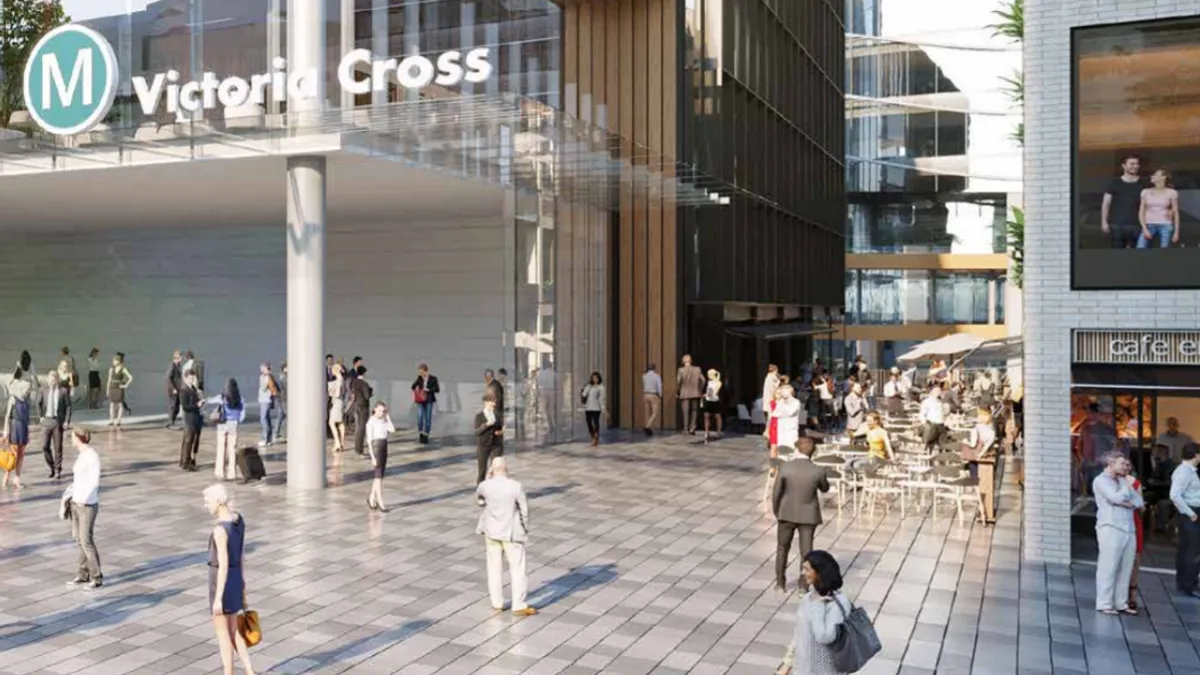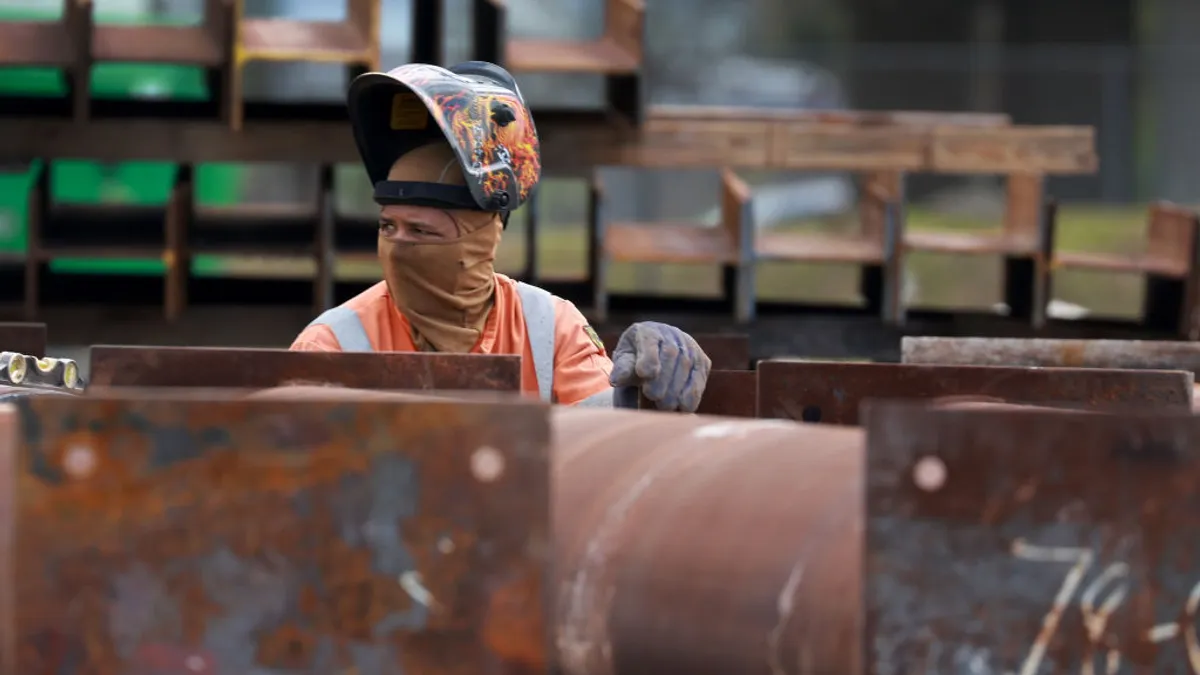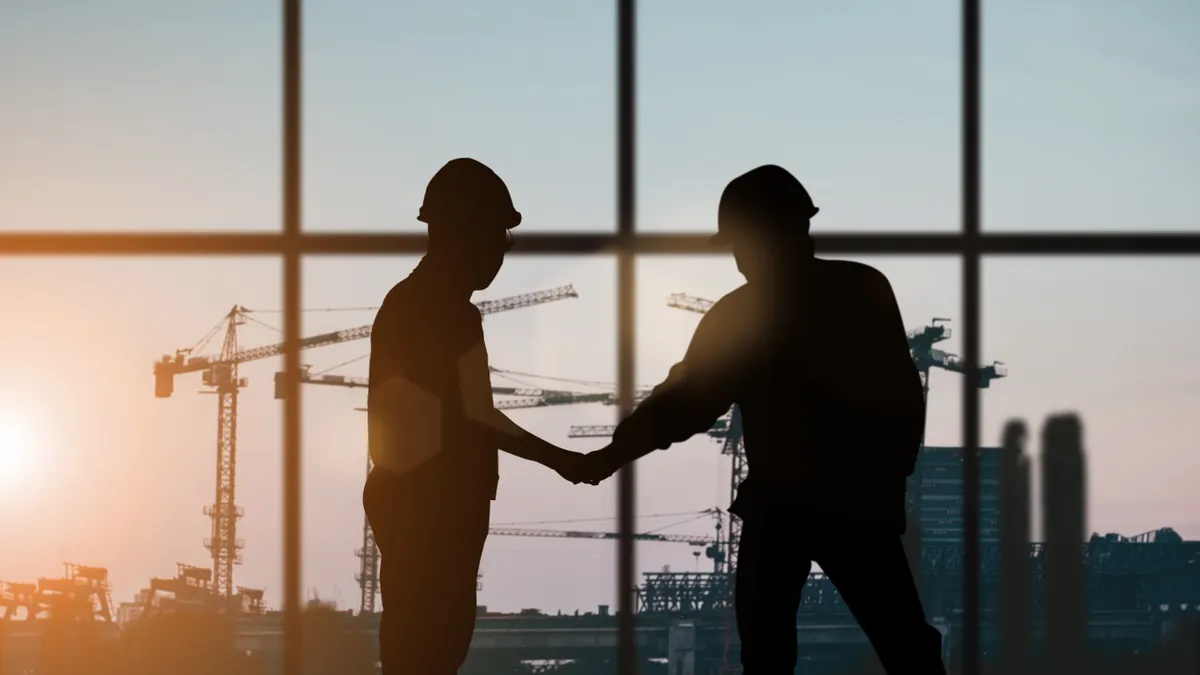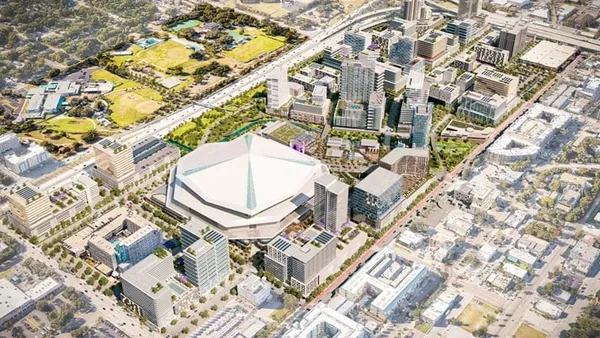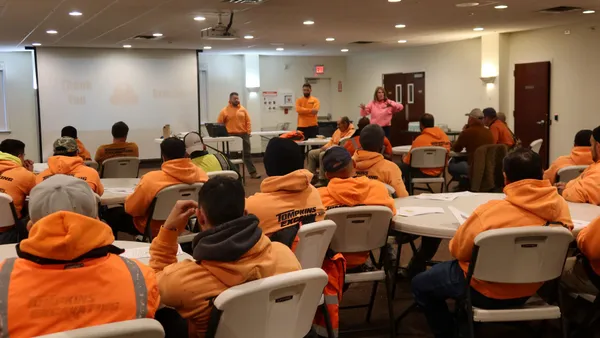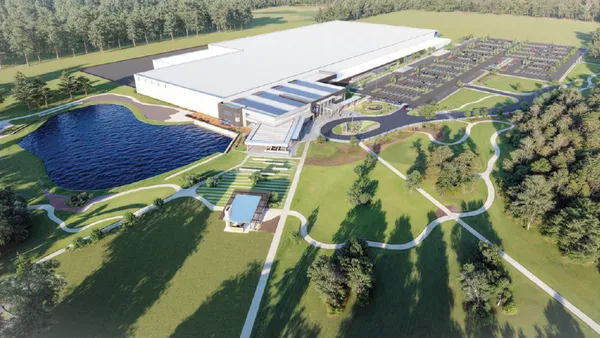Dive Brief:
- Australia-based contractor and developer Lendlease reported its full-year 2020 financial results today and gave investors and analysts an update on the status of its major projects around the world, its strategy moving forward and how the COVID-19 pandemic has affected its operations amid an overall after-tax loss of 310 million Australian dollars ($223 million).
- The firm said its core construction and real estate development business scored a AU$96 million profit for the full year, but a second-half overall loss of AU$212 million, to which the spread of the novel coronavirus contributed, helped put the company in the red. The company's construction projects were hardest hit in the cities that ordered shutdowns and its real estate investment portfolios suffered as market values declined.
- Despite the COVID-19 pandemic, the company's core business has a development backlog of AU$113 billion, which is a 48% increase year over year. The firm also announced that it has won two major urbanization projects worth AU$37 billion, secured investment partnerships worth AU$7 billion and has launched a new zero-carbon sustainability initiative. In addition, the AU$160 million sale of its engineering business is expected to be finalized soon.
Dive Insight:
During the company's presentation, the global COVID-19 pandemic was presented as a challenge, but group CEO Stephen McCann said that the company has taken defensive measures such as reducing costs, has the wherewithal to survive though a potential extended industry downturn and is poised to take advantage of future opportunities.
Group CFO Tarun Gupta said that the company is working on several build-to-rent residential projects, including one for Google in San Francisco. Planning is underway for that AU$20 billion, 15 million-square-foot project, he said, which also includes plans for retail and hospitality space.
"Urban precincts" in gateway cities — like the Google project — remain a key initiative for the company, and Lendlease's efforts toward sustainability, McCann said, have been key in securing those mammoth projects, which are still on the company's agenda.
"We're not departing from our gateway city strategy," McCann said. "The resilience of those cities, the differentiation we bring through urbanization and placemaking on a mixed-use basis, that's the cornerstone of our strategy. How to accelerate the delivery of returns for shareholders from that pipeline is the primary theme."
When asked how Lendlease plans to deal with a potential second wave of the pandemic, McCann said the company is prepared.
"Our teams around the world have done an incredible job of introducing the flexibility required to continue to be productive whilst maintaining safety," he said.
Neither Lendlease nor its subcontractors have had any fatalities related to COVID-19 thus far, McCann said, and have had a "reasonably small" number of cases, about 23.
"I think that's been an incredible effort and demonstrates that the protocols do work," McCann said. "Hopefully that puts us in a good position to still drive performance, albeit in a restricted way, if there are further waves around the world."
The pandemic has also impacted both how the company negotiates terms for new work and renegotiated terms of existing contracts.
"Overall, I'd say there has been a very good level of cooperation between customers and contractors," McCann said. "We’re seeing that in our business and other businesses as well — recognition that this is a shared problem.
"So, we're working through those things in relation to existing projects and certainly in relation to future projects," he said.


